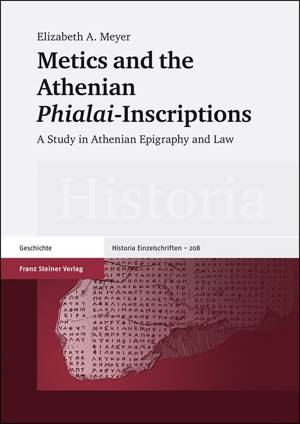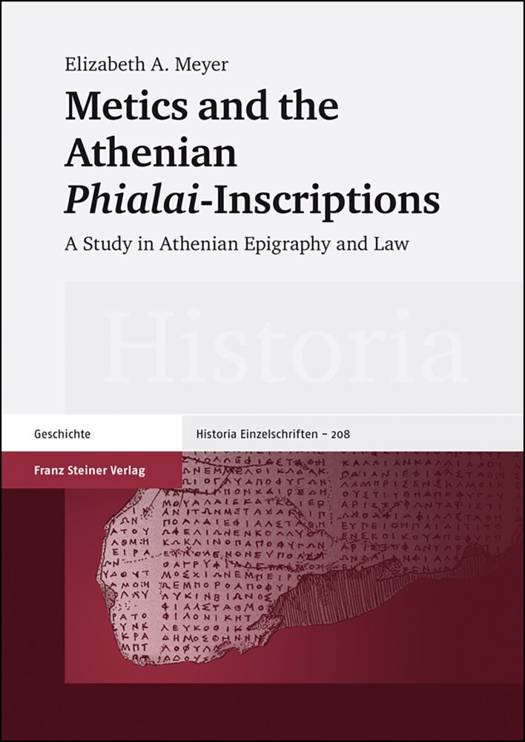
Bedankt voor het vertrouwen het afgelopen jaar! Om jou te bedanken bieden we GRATIS verzending (in België) aan op alles gedurende de hele maand januari.
- Afhalen na 1 uur in een winkel met voorraad
- In januari gratis thuislevering in België
- Ruim aanbod met 7 miljoen producten
Bedankt voor het vertrouwen het afgelopen jaar! Om jou te bedanken bieden we GRATIS verzending (in België) aan op alles gedurende de hele maand januari.
- Afhalen na 1 uur in een winkel met voorraad
- In januari gratis thuislevering in België
- Ruim aanbod met 7 miljoen producten
Zoeken
Metics and the Athenian 'Phialai'-Inscriptions
A Study in Athenian Epigraphy and Law
Elizabeth a Meyer
€ 154,95
+ 309 punten
Uitvoering
Omschrijving
Beneath the shining world of the citizen of Classical Athens was the perilous shadow-realm of the resident foreigner, the metic. Emblematic of the status of metic was the requirement to pay a special metic tax, the metoikion. And if a metic failed to pay this tax, he or she would be sold into slavery, a fate that threatened no citizen of the classical Athenian polis. In the late fourth century BC the Athenians, in the face of widespread departure of metics in the face of economic recession and legal harassment, moved to improve metics' legal situation in order to entice metics back to Athens. It is to the context of these legal reforms of the metic condition, this volume argues, that a celebrated set of fourth-century BC Athenian inscriptions recording dedications of silver cups, phialai, belong. Known since the nineteenth century as the "Attic Manumissions", these inscriptions have been thought to be the result of a legal process by which slaves were set free. Here these inscriptions are published as a corpus for the first time. And it is argued that they represent not the freeing of slaves, but preserve instead the traces of prosecutions of metics for failure to pay the metoikion. In the new pro-metic atmosphere of the 330s BC, persons who sued metics for failing to pay the metic tax, but did not win a conviction, were fined to discourage frivolous suits, and part of that fine was dedicated to divinity in the form of a phiale.
Specificaties
Betrokkenen
- Auteur(s):
- Uitgeverij:
Inhoud
- Aantal bladzijden:
- 167
- Taal:
- Engels
- Reeks:
- Reeksnummer:
- nr. 208
Eigenschappen
- Productcode (EAN):
- 9783515093316
- Verschijningsdatum:
- 31/10/2010
- Uitvoering:
- Hardcover
- Formaat:
- Genaaid
- Afmetingen:
- 175 mm x 244 mm
- Gewicht:
- 544 g

Alleen bij Standaard Boekhandel
+ 309 punten op je klantenkaart van Standaard Boekhandel
Beoordelingen
We publiceren alleen reviews die voldoen aan de voorwaarden voor reviews. Bekijk onze voorwaarden voor reviews.









